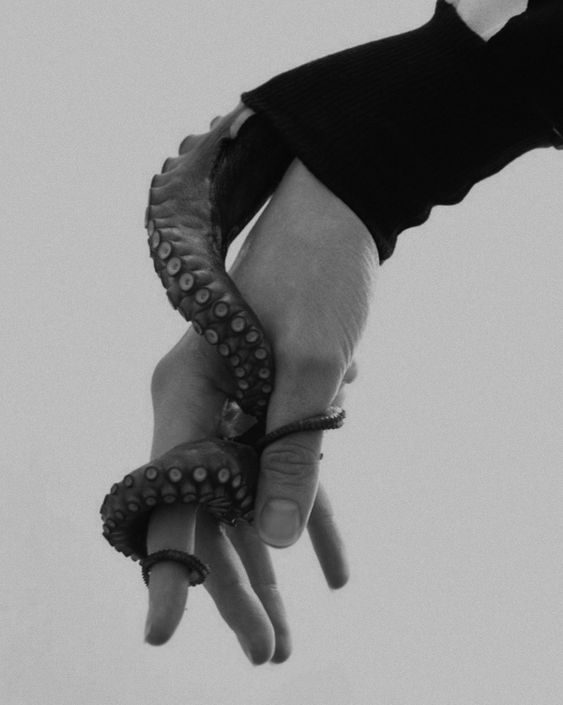 In astrology, the grand theme of sacrifice is cloaked in the shimmering mists of Neptune’s illusions, spirituality, and—dare I say—emotional subterfuge! We’re diving into the very essence of what it means to offer up oneself in the name of something “higher,” be it sacred, collective, or entirely fabricated by the vast machinery of our own internal chaos. Sacrifice is rooted in sacer, the sacred. But isn’t it curious how this noble act, once tied to altars and heavenly bargains, has morphed into something far more pervasive, more sly? Neptune speaks to us about duty, selflessness, and the greater good—but what happens when that holy offering is tinged with a subtle manipulation, or a craving for reward, even if it’s just the glow of martyrdom?
In astrology, the grand theme of sacrifice is cloaked in the shimmering mists of Neptune’s illusions, spirituality, and—dare I say—emotional subterfuge! We’re diving into the very essence of what it means to offer up oneself in the name of something “higher,” be it sacred, collective, or entirely fabricated by the vast machinery of our own internal chaos. Sacrifice is rooted in sacer, the sacred. But isn’t it curious how this noble act, once tied to altars and heavenly bargains, has morphed into something far more pervasive, more sly? Neptune speaks to us about duty, selflessness, and the greater good—but what happens when that holy offering is tinged with a subtle manipulation, or a craving for reward, even if it’s just the glow of martyrdom?
In many ways, Neptune holds up a mirror not just to spirituality, but to the darker waters of our subconscious. We want to believe our sacrifices are pure, don’t we? That every moment we give up our own desires is lubricating the wheels of some collective good. But under the surface, swirling just beneath that sacrifice, lies the trickster side of Neptune, the side that trades in illusions. It often says, “Your sacrifice won’t go unnoticed,” and oh, how we crave that validation. We speak of self-abnegation, but secretly, in the dark corners of our minds, we’re hoping for recognition, or at least a high-five.
It’s no wonder we feel spiritually indebted when someone sacrifices for us, isn’t it? Neptune laces those moments with guilt and gratitude, and of invisible obligations. Even when we don’t consciously recognize it, the strings are pulled—almost like a subtle puppet master. You can’t ignore it because Neptune won’t let you! That’s its genius. It operates not on the level of hard logic but in the fuzzy realm of emotion, symbolism, and the unspoken agreements that leave you wondering if you’ve signed on for more than you realized.
And those under Neptune’s sway? They often wear their sacrifices like a crown of thorns, believing that their personal suffering serves the collective. But here’s the question: Does it, really? Or are they simply caught in the web of Neptune’s grand drama, mistaking self-sacrifice for transcendence when, in fact, they may just be sinking deeper into their own illusions? Sacrifice is a sacred act, but perhaps the most enlightened offering we can make is not the one that leaves us depleted and hollow but the one that allows us to serve without the invisible strings of expectation attached. And Neptune, that dreamweaver, might occasionally step aside to reveal that true sacrifice isn’t about loss or martyrdom but about love—free, unencumbered, and limitless.
Neptune is the maestro of sacrifice and the grand orchestrator of our inner yearnings. We look at those marked by his influence, and what do we see? The shadow of Christ’s crucifixion, suffering worn like a badge of divine honor. Some find comfort, even validation, in the parallels between their personal tribulations and the narrative of selfless agony that Christ’s life embodies. It’s as if they believe their pain is sanctified, a necessary piece in the puzzle of existence, and Neptune, being the mystic trickster he is, delights in such identifications.
But let’s talk about the deep astrological game Neptune plays. Wherever Neptune is paced in your chart—oh, those houses of self, home, or career—it’s like Neptune’s leaning in with a soft, dreamy voice, saying, “Here is where your sacrifices will take root. You’ll lose a bit of yourself, but perhaps you’ll gain something higher.” Whether these sacrifices are willingly offered up on the altar of life or dragged from us kicking and screaming is often where the cosmic dice roll. The universe, after all, isn’t always gentle with its demands.
Now, too much sacrifice, and life starts to look like a bleak landscape of unfulfilled dreams. It’s the territory of the Neptunian soul, where longings stretch like an endless horizon, the promised land always just out of reach. It’s a landscape painted with soft hues of nostalgia and melancholy, a place where love and desires often feel elusive. But there’s beauty in the ache, isn’t there? Something profoundly human about giving, not for the sake of reciprocation but simply because it feels like the right thing to do. A bit like pouring water into the desert, hoping some part of the parched earth will remember the taste of rain.
Yet, despite the divine nature of sacrifice, we often view such grand gestures with a side-eye. “What’s in it for them?” we ask, our skepticism thick with the scent of mistrust. Neptune, after all, carries the energy of illusions, and it’s hard not to suspect some hidden agenda lurking beneath the veil of pure generosity. Are these selfless acts truly without strings, or are we caught in Neptune’s web of spiritual subtext, where even the holiest sacrifices come with a price—be it recognition, validation, or emotional control?
Despite our cynical leanings, we can’t help but admire those who give selflessly. In a world so driven by the relentless pursuit of self-interest, genuine acts of kindness shine out. It’s hard not to be moved by someone who offers without asking anything in return, those who devote themselves so completely to a cause, a person, or a vision that they seem almost saintly. In this, we see the best of Neptune’s influence, the side that uplifts and inspires, casting a sacred glow over those who manage to give without drowning in their own sacrifices.
Then, of course, there are the Neptunian wanderers, forever in search of a cause worthy of their devotion. Whether it’s a romantic relationship, a creative endeavor, or the search for an ideal home that feels like a haven, their lives are often shaped by this deep yearning for something larger than themselves. But not all sacrifices under Neptune are about the physical—they can just as easily be emotional. We find ourselves tied to people or projects, pouring out our hearts, even when the returns are uncertain. And there’s that longing for creative and emotional fulfillment, the search for something that fills the void left by the elusive dreams of Neptune.
The Neptunian martyr is the one who seems to walk through life with a permanent sigh, as if the weight of the world rests squarely on their delicate shoulders. It’s a curious phenomenon, really. Neptune, with all its shimmer, paints life in hues of longing, compassion, and illusion. But if those Neptunian personalities aren’t careful, that watercolor dreamscape can easily dissolve into a grey fog of self-pity, where they begin to feel as if they’re forever wronged, forever oppressed—forever the victim.
And why? It’s because their creative energies are stifled, their emotional needs left to wilt in the sun, and their reliance on others becomes too heavy a burden to bear. Neptune, when out of balance, is like a leaky ship—always adrift, always searching for a shore, but never quite reaching it. In this state, people are prone to take on the role of the martyr, as if suffering itself confers some sort of spiritual nobility. But the truth is, there’s nothing noble about drowning in the emotional waters Neptune tends to stir up.
Then there’s emotional autonomy, a beautiful and necessary counterbalance to Neptune’s instinct to merge with others, to lose oneself in relationships, in the needs and desires of the people around you. Neptunian types often struggle with boundaries, and this can lead to a deep sense of emotional dependence. They give and give, sometimes hoping for reciprocity, but often finding themselves empty and disappointed. The lesson here is to learn the art of giving without losing yourself in the process. Emotional autonomy means recognizing your own worth, your own needs, and being okay with the fact that sometimes, you’ve got to put yourself first.
And let’s not forget relationships. Neptune, for all its ethereal charm, has a tendency to romanticize, to put people on pedestals, and to idealize love to the point where reality feels like a letdown. But healthy relationships are built not on illusions but on truth. A Neptunian person needs to keep their feet on the ground even while their heart soars among the stars. It’s about finding love that nurtures and supports, not one that drains or distorts.
The myth surrounding Neptune, your ruler, involves several images of sacrifice. When astrologers look at Neptune in a personal horoscope, they associate sacrifice with the area of life occupied by that planet. Neptune in the 4th house, for example, describes a sacrifice made in connection with one’s family, and perhaps one’s homeland and house. In the 2nd house, Neptune describes giving up money and possessions. By Astrology Made Easy
For those born under the influence of Pisces, and with that prominent 12th house in their astrological chart, life often feels like a series of quiet pulls towards service, sacrifice, and a deep-seated idealism that’s both their gift and their burden. Pisces, the final sign of the zodiac, is a kind of spiritual bridge, an intermediary between the seen and unseen, the flesh and the divine. And with Neptune as their planetary guide, they’re drawn irresistibly towards the sublime, the mystical, and the unseen undercurrents that flow through life.
This makes them uniquely attuned to the notion of sacrifice, not as an obligation, but as a natural release from the entanglements of the material world. After all, when you don’t cling too tightly to worldly possessions, it’s easier to offer them up—whether that means your time, your energy, or even your heart. However, as with anything that Neptune touches, the danger is that the act of sacrifice can become fogged by illusions, distortions, and the ever-present possibility of martyrdom.
The 12th house is particularly tricky terrain. It carries the weight of karmic reckoning, a sense that those under its influence have some kind of unfinished business with the universe. It’s the house of the subconscious, hidden enemies (often of our own making), and deep spiritual lessons. Those who are touched by its energies often feel an invisible pull towards duty, a kind of responsibility to heal the world, to tend to the suffering of others. Yet this very drive can become a trap, a well-worn groove where they lose themselves in the problems and pain of others, mistaking it for their own.
In the symbolic language of tarot, the Hanged Man captures this Piscean-Neptunian and 12th house theme perfectly. There he is, suspended between two worlds—between earth and sky, between what is and what could be—sacrificing himself, not out of necessity, but out of choice, and often for the sake of something greater. But his sacrifice is not without purpose: he is there to gain perspective, to see life from an angle that others might miss. His twelve severed branches point towards the lessons of the zodiac, the cycles of time, and the burdens of experience. He is bound, but his bondage is not one of punishment. It’s a pause, a moment of surrender so that wisdom might emerge. And isn’t that the core of the Piscean journey? The search for meaning through letting go?
However, the Piscean challenge lies in avoiding the seductive pitfall of self-pity. Neptune, with its soft, elusive edges, has a way of making the lines between compassion and victimhood blur. Pisces feels so deeply, absorbs so much of the world’s pain, that it’s all too easy to slip into the role of the martyr, believing that their suffering has some higher meaning or that their pain is a necessary condition for the healing of others. But this, of course, is the illusion. True compassion does not require self-sacrifice to the point of losing oneself. It’s not about bleeding out so others can thrive.
The path for Pisces, guided by Neptune’s lofty ideals and the karmic pull of the 12th house, is one of integration. They must learn to offer their gifts—of empathy, intuition, and devotion—without sacrificing their own happiness in the process. In doing so, they become not just healers of others, but healers of themselves. This is their true lesson: that wholeness comes not from saving the world, but from recognizing their own divine value within it.
The Piscean soul is marked by its yearning to serve, to heal, to pour out love like a river that knows no end. But here lies the crux of it: self-sacrifice, when misunderstood or taken too far, becomes not a gesture of divine giving but a slow erosion of self. And what’s the point of sacrificing one’s joy, one’s fulfillment, if the end result is a hollowed-out vessel, incapable of sustaining itself, let alone others? These sensitive, spiritually attuned souls, influenced by Pisces, Neptune, and the 12th house, are handed a unique, often daunting, set of lessons about the true nature of sacrifice.
Genuine compassion must start within. Neptune might beckon with its intoxicating ideals of selflessness, its siren song of giving until there’s nothing left to give. But the higher wisdom, the kind that arises through the trials and tribulations, reveals a deeper truth: you cannot pour from an empty cup. Sacrificing your own happiness, in the name of others’ well-being, doesn’t guarantee their happiness—it often just ensures your suffering.
True path to growth is not through self-abandonment. The Piscean journey involves learning that personal happiness and fulfillment are not indulgences but essential ingredients for a meaningful life. To be of service to others, to extend love and compassion in a way that is sustainable, these individuals must first be whole within themselves. Sacrifice, in its most enlightened form, is not about deprivation or martyrdom. It’s about making conscious choices—choices that honor both the self and the greater good. This means saying no when needed, understanding that their needs and aspirations are just as valid as anyone else’s. It means finding joy in service, rather than feeling drained or diminished by it. True sacrifice arises not from a need for external validation or approval, but from a place of inner strength. It’s a giving that flows naturally, without resentment, because the giver has not neglected themselves in the process. In the end, the Piscean soul, through its trials, comes to understand that the most profound form of sacrifice is the ability to stand in one’s own truth, to live authentically, and to offer compassion from a place of fullness.












